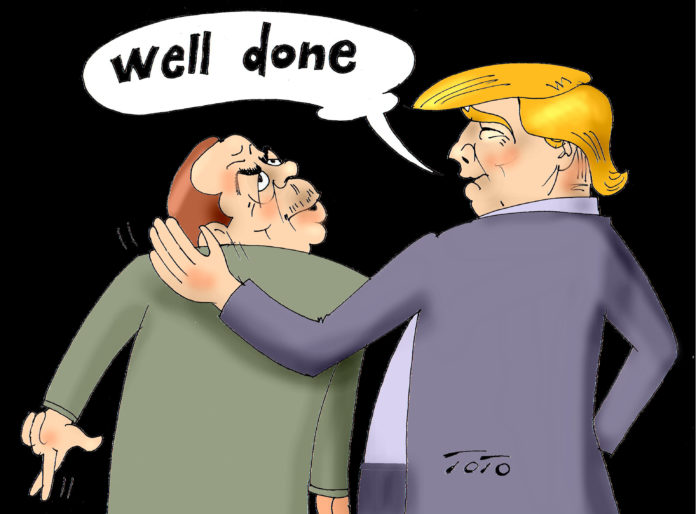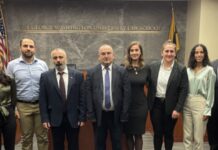On the eve of the 102nd anniversary of the Armenian Genocide, there was a whirlwind of facts and factors about the unhealed wounds — the anticipation of President Trump’s statement, Robert Fisk’s revival of the 1919 Turkish acknowledgement of the facts, Taner Akçam’s confirmation of Ottoman bureaucracy’s coding system, Samantha Power’s belated apology, the sale of Washington’s erstwhile Armenian Genocide Museum property, and to top it all, President Recep Tayyip Erdogan’s conciliatory message to Armenians.
All those elements are in a whirlwind and one has yet to hit the bull’s eye and get the job done once and for all.
Armenians are jaded with the hypocracy of the world, to President François Hollande’s last-minute call for the criminalization of denialism and wreath-laying ceremony of presidential hopeful Emmanuel Macron in France.
To begin with, President Trump’s statement, Armenians had almost given up on any positive move from the White House, given the reticence of Trump’s predecessors to honor their pledges to recognize the Genocide. However, there was a glimmer of hope. Granted, as a presidential candidate Mr. Trump did not make any commitment on the Genocide issue, ignoring it altogether. But with unpredictability being a hallmark of Trump’s policies, some had hoped for a positive development. But this time around, Mr. Trump uncharacteristically followed the script.
Traditionally, every year a high-power Turkish delegation visits Washington on the eve of April 24 to warn the US administration of the consequences of recognizing the Armenian Genocide on Turkish-American relations. This year, that visit was made to the Pentagon by Turkey’s Minister of Defense Fikri Isik. The visit lasted 24 hours and certainly it carried on top of the agenda the issue of Genocide recognition. But the official occasion was cited as Turkey’s appeal to the US to stop supporting the Kurds in Syria.
To convey a subtle message to Washington, another minister in Ankara simultaneously announced that Turkey had just completed negotiations with Russia to purchase advanced missile systems, and that for the moment, sealing the deal was on hold. The discreet blackmail certainly led Pentagon planners to reach out to the White House. What transpired behind closed doors was that Mr. Trump would refrain from using the term genocide in return for Mr. Erdogan’s conciliatory statement. This is a rerun of an old-fashioned scenario, which has its precedent when the White House was able to avoid the issue, heralding a false breakthrough in Armenian-Turkish rapprochement, which in the end never materialized.










